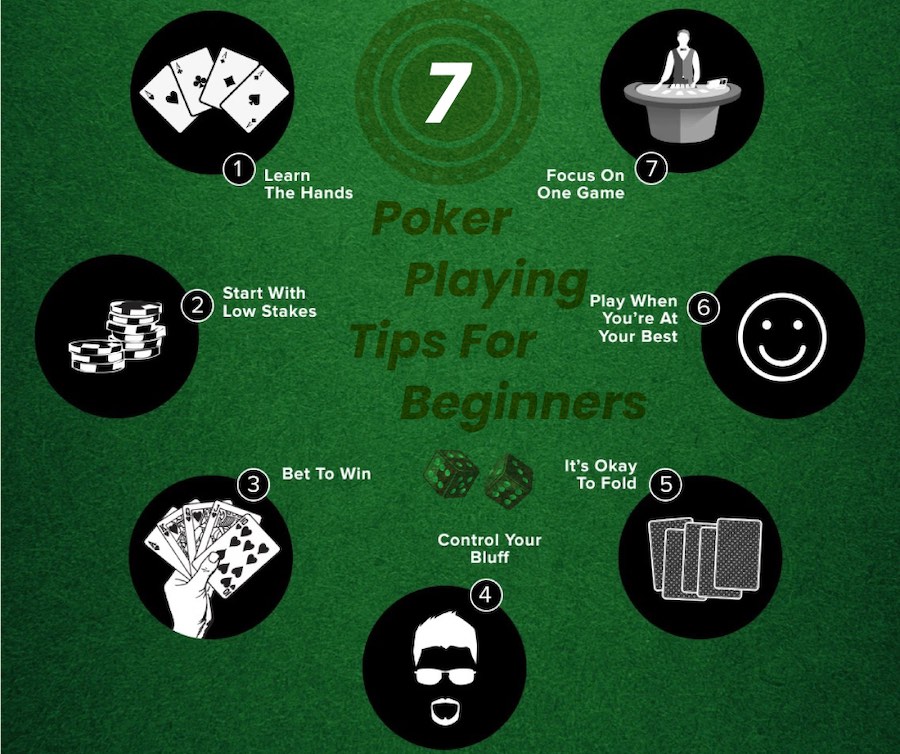Most people have probably encountered poker at some point in their life, be it in a casual home game with friends or family, through a play money mobile app, or through an occasional visit at the local casino. It’s easy to think that poker is much like any other card game, which is played purely for fun and is dictated by luck, and that the money is just something to be won when we get lucky, but that is most definitely not the case.
Poker is a complex game where it’s possible to win consistently regardless of your luck. It’s a skill game. Some may even liken poker to a sport, and they’re not entirely wrong about it. Poker, in reality, is a competitive game where there are great players and poor players. Professional poker players exist because of the fact that they are simply better than most other poker players in the world.
Getting better at poker is a process that requires both knowledge and practice. Before you hit the tables and take the grind seriously, it’s essential that you have a solid foundation on the theory and mathematics behind the game, and that you continuously work hard to improve your game.
Whether you’re an aspiring grinder who dreams to live a professional gambler’s lifestyle, or someone who wants to make poker a source of side income, or even someone who would just want to crush your friends at your regular home games, here are some tips to help you improve as a poker player:

1. Start playing at low stakes
If you really want to get better, it’s important that you put the reps in. To get as much practice as possible, it’s essential that you play at low stakes so you don’t have much to lose. As a beginner, you’re bound to lose at some point, so think as if the money you’ve lost is the tuition fee you’ve paid to learn the game. Of course, you’d want to make that tuition fee as cheap as possible.
From our partners:
2. Learn the odds
Players who take the game seriously know how essential the mathematics of poker is. There’s no need to worry, though, as learning pot odds and implied odds is fairly easy. It may seem daunting at first, but after a few sessions, the calculations become automatic.
3. Be observant of your opponents
In poker, the people you play with are just as important as the cards that are dealt. Observe the tendencies and patterns of your opponents, especially those who seem to be playing poorly, otherwise known as fish. Once you’ve observed a particular tell such as shaking when bluffing, or a tendency such as betting twice the pot with a made hand, you’ll be able to exploit these behaviors and make money off of these players. On the other hand, it’s also important to observe how the good players are playing as you may learn a thing or two from them as well. If you’re an online player, you can do this by using a heads-up display or HUD, which allows you to see various statistics on the tendencies of your opponents.
4. Have an understanding of GTO
GTO, or game theory optimal strategy is a strategy that is as close to playing as perfect poker as possible, regardless of the cards you are dealt and the opponents you have. Having a GTO playing style essentially removes the leaks in your strategy and makes it impossible for other players to exploit you. Playing GTO is advised when you’re playing against strangers or playing online without an HUD, where you have no idea yet of how to exploit other players.
5. Adopt a consistent strategy
The best poker players approach the game in a consistent manner, regardless of their opponents and regardless of the stakes they play. Indeed, learning to play GTO is a great tool, and is essential in playing winning poker, but the way you play depends entirely on you. GTO may and should be adopted in certain situations, but it’s essential to have a consistent winning strategy that you know by heart. Being consistent means that you shouldn’t rely on signs when playing poker, and that you play in a way that nets you the most profit. Just because your lucky card is on the board doesn’t mean that you have to go all in.
6. Avoid illogical and obvious bet sizing
In line with a consistent strategy is having a consistent bet size in every pot you choose to fight for. This makes you unpredictable. Whether your hand is strong or weak, you should not give your opponents an opportunity to have an exploitable read on you.
7. Don’t be afraid to fold your aces
Who doesn’t want to be dealt aces? Indeed, bullets are the strongest preflop hand, but things can go wrong any time. What good are your red aces if there are four clubs on a paired board? Having aces is not a ticket to success, but knowing how to play them is.













